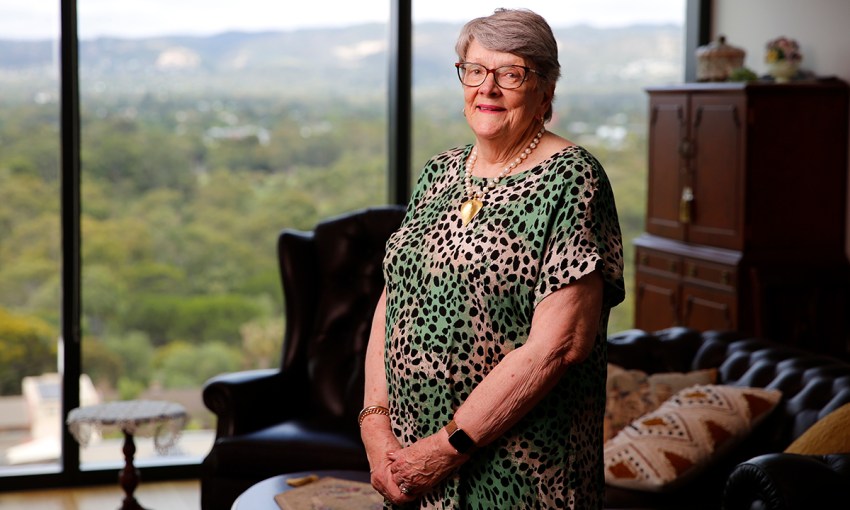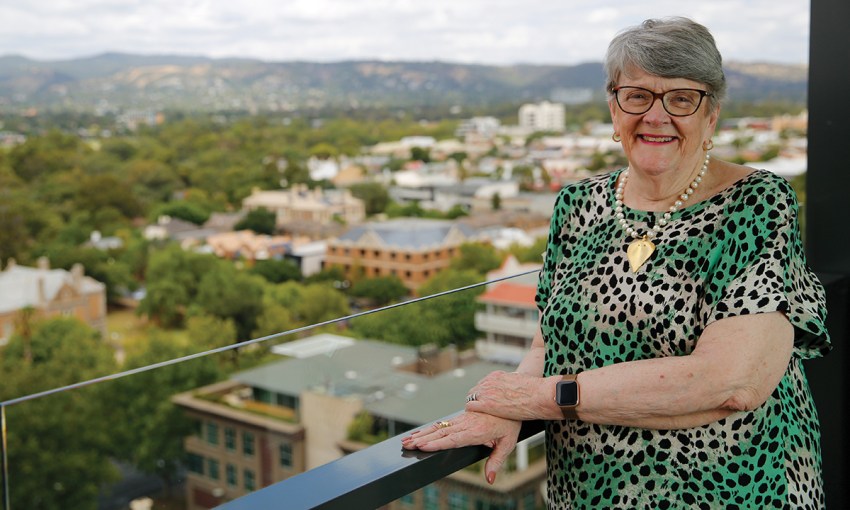Trailblazers in their male-dominated professions, these South Australian women have broken new ground for others to follow. Barbara Sibley tells us about the challenges she faced and how she overcame them.
Words of wisdom: Barbara Sibley
Barbara Sibley – Stockbroker
Can you give us a brief summary of your career?
I started working at a stockbroking firm in 1957 at the age of 17. I chose stockbroking and I’ve never regretted it; it’s been my life up until I retired in October last year.
After a break to have children, I became a stockbroker in 1984 and subsequently experienced the 1987 crash. The phones just didn’t stop ringing, people panicked, and there was a lot of buying and selling.
From 2004 to 2021 I was director of the Adelaide Branch of Morgans, the largest stockbroking business in Australia. I’m most proud of the rapport and trust I’ve established with clients, some of whom I worked with for more than 30 years; a long time to build a relationship.
What were some of the challenges you faced early on in your career?
When I started, I was the only female at the company for a long time. It was a male-dominated industry and some felt threatened by a woman who was able to do what they could. It was tough in those days because you were treated as if you weren’t capable. It all just gave me an incentive to prove that I could do it.
Many of my colleagues would go to the male-only Stock Exchange Club for lunch and some of them wouldn’t come back for the whole of that afternoon. One particular broker invariably did come back to the office, but was almost incapable of holding a conversation. When the phone rang and the brokers weren’t around, clients were happy to speak with me and sometimes I was accused of taking their clients away from them.

How did you overcome these challenges?
I very quickly learnt to hold my own in that environment and I never felt intimidated to the extent that I’d come home upset. Some of the men were very respectful, but others were less so.
When I was 17, on my second or third day, a colleague in his mid-20s made advances to me that these days could be deemed harassment. I told my parents what had happened and they said it would be okay if I don’t want to go back, but I was determined that he wasn’t going to make me feel intimidated and I stood up for myself. I made him realise he wouldn’t get away with it and he never did it again.
What has been the most significant improvement for women in your profession during your career?
There has been a gradual acceptance but there is still plenty of work to be done in this area. Once, a female colleague and I made front page news over a controversy with the Stock Exchange Club, which was a real boys’ club. When the club fell into financial difficulty, they decided to allow women to join as a way to help boost their membership in a time of need, but some of us refused. In those days it was quite significant that we would have the audacity to make a stand.
What is still to be achieved for women in your profession?
There is still more work needed in the equal recognition of women in the workplace.
What is the one piece of advice you would give young women entering professional work today?
If it was a client’s birthday or if they were unwell, I would make a personal call to ask how they were going. It’s an industry where the client is taking a huge risk by trusting you, so you have to reciprocate that trust. You don’t often get that personal approach in business these days and I still get phone calls from clients saying “We miss you”.
This article first appeared in the March 2022 issue of SALIFE magazine.



